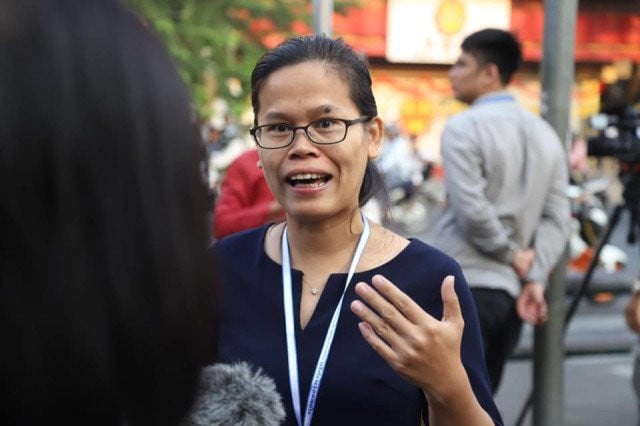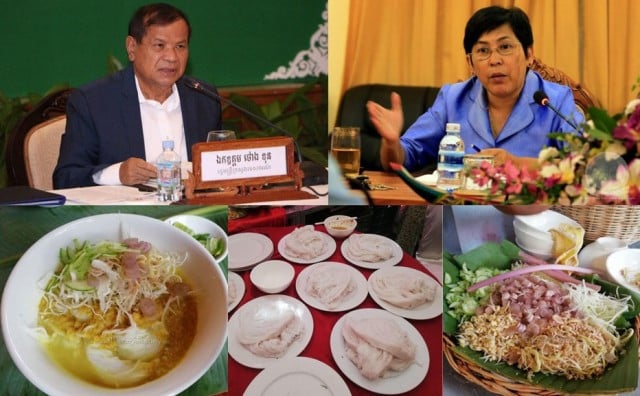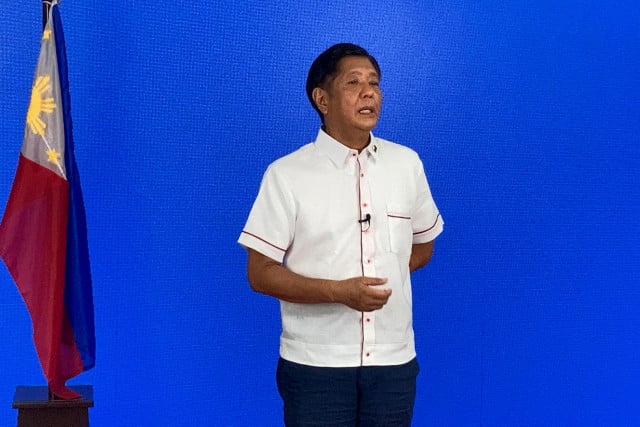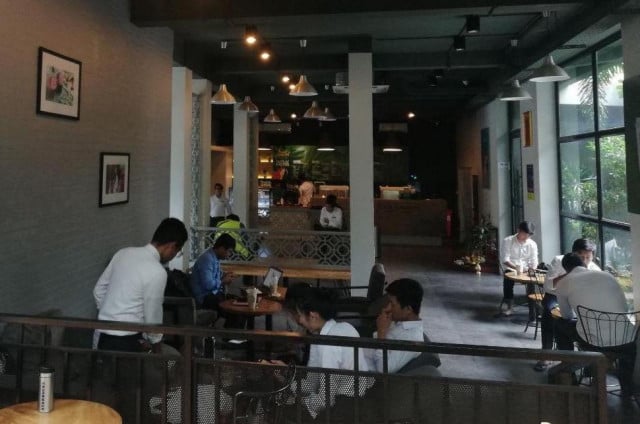Women’s Rights Need to be Enforced

- By Lay Sopheavotey
- March 8, 2022 5:28 PM
The laws are there but implementation is limited
PHNOM PENH--Executive director of Cambodian Center for Human Rights (CCHR) Chak Sopheap says gender equality in human rights protection has been promoted by many government and non-government organizations. Women’s rights defenders are demanding action but law implementation is still limited and gender stereotypes and impunity still exist in Cambodian society. Cambodianess’s Lay Sopheavotey spoke to Chak Sopheap about women’s participation in promoting democracy and human rights.
Lay Sopheavotey: Chak Sopheap, can you evaluate gender equality in the field of promoting democracy, especially in terms of advocacy and monitoring in Cambodia?
Chak Sopheap: If we look at gender equality and respect for women in Cambodia, there is a lot of support from the government and civil society organizations in promoting women to participate in politics, administration, the private sector and as entrepreneurs.
However, the question is, how much do women play a role in decision-making and leadership? Government, civil society and private organizations have been trying to include women, but these women are not included to make decisions or to lead.
Taking a closer look, we can see that the promotion quality and the number of women’s rights defenders are still limited. In a general context, government and some other private organizations are positively supportive in protecting women’s rights.
Women’s rights defenders, on the other hand, are experiencing discrimination and being taken down by authorities.
We can practically see the issue through the Feminist Live Friday and female protesters at NagaWorld that they are active in advocating while their rights to strike and demand are protected by national and international law, but they had to experience discrimination and violence, including arrests, beatings and detention.
In Cambodian society, the current challenging obstacles for female human rights defenders include the lack of full protection. The rich, powerful people, especially those working in line with government, still get away with their wrongdoings by only facing administrative fines, or transfer or dismission from their current position.
Therefore, gender equality in promoting democracy and human rights in Cambodia is still difficult to develop as impunity still exists.
Lay Sopheavotey: As a woman working in advocacy and human rights monitoring, what challenges have you personally faced in your work?
Chak Sopheap: I have already mentioned some difficulties above. As a woman standing for human rights protection and the representative of a civil society organization, I have personally experienced gender-based violence, insults, bullying and all forms of threat.
When the government drafted a law on public order to restrict the dress code of women, an anonymous person edited pictures of me and other women who objected to the restrictions to make us appear naked.
Applying cultural pressure, limiting freedom and decision-making, and putting a burden on women cannot solve the problem unless the wrongdoers are punished.
Gender equality in all sectors should be the same – stop creating more burdens on women. Instead, promote women’s rights starting from individuals, family, authorities, as well as all relevant people in society as a whole with progress and quality.
Lay Sopheavotey: Seeing many obstacles as a woman working on human rights protection, are you going to continue working in this field in the future or looking for another job in different field?
Chak Sopheap: All jobs in government, private sectors and civil society have the same value and challenges. When civil society citizens make requests to the government, the authorities also face challenges, and so does civil society organization, as civil society organizations are the ones exposing the facts of individuals who commit wrongdoing and have different concepts from the government.
What is important in coping with these challenges is to resolve the conflicts peacefully in accordance with the law, and not violence. Therefore, I will continue this work because my purpose is to contribute to promoting our society and our country to have full democracy, and civil society organizations play a very important role to examine the mistakes or the shortcomings of the government.
Lay Sopheavotey: What is your perspective on the kind of desirable support on promoting democracy and human rights in Cambodia?
Chak Sopheap: As civil society organizations working on human rights, including women's rights, we want to see Cambodia practically implement the national and international laws that Cambodia has accepted.
The laws that Cambodia has, especially the Constitution, guarantee the rights of all citizens to actively participate in society, economy, culture and politics. Cambodia has accepted many conventions related to the protection of human rights and the elimination of violence against women.
Thus, if Cambodia complies with these legal standards, every citizen should be able to receive full freedom to participate in social work without fear and violence.
At the same time, the public must support women to be more courageous. This change of mindset on gender stereotype needs the participation from all people, especially family members, to support women’s decision-making and their actions against psychological pressure from all sources.
I hope we can all change the mindset that places a burden on women and create positive impacts on people in general.
Lay Sopheavotey: Finally, what message would you like to send to the women out there to help promote democracy and human rights in Cambodia?
Chak Sopheap: I would like to thank all women for always protecting women’s rights, and I encourage them to continue protecting the freedom and bravery of women to have gender equality together.
We will all continue to participate in solving social issues as well as promoting human rights to improve our livelihood.
Translated by Meng Seavmey















